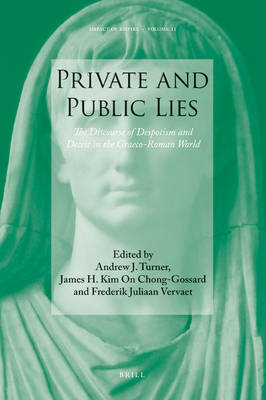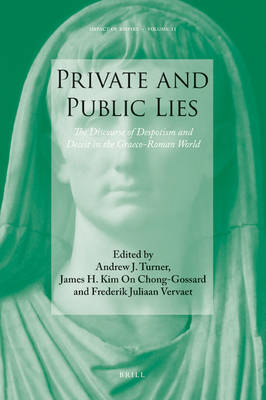
- Afhalen na 1 uur in een winkel met voorraad
- Gratis thuislevering in België vanaf € 30
- Ruim aanbod met 7 miljoen producten
- Afhalen na 1 uur in een winkel met voorraad
- Gratis thuislevering in België vanaf € 30
- Ruim aanbod met 7 miljoen producten
Zoeken
Private and Public Lies
The Discourse of Despotism and Deceit in the Graeco-Roman World
€ 328,45
+ 656 punten
Omschrijving
Graeco-Roman literary works, historiography, and even the reporting of rumours were couched as if they came in response to an insatiable desire by ordinary citizens to know everything about the lives of their leaders, and to hold them to account, at some level, for their abuse of constitutional powers for personal ends. Ancient writers were equally fascinated with how these same individuals used deceit as a powerful tool to disguise private and public reality. The chapters in this collection examine the themes of despotism and deceit from both historical and literary perspectives, over a range of historical periods including classical Athens, the Hellenistic kingdoms, late republican and early imperial Rome, late antiquity, and Byzantium.
Specificaties
Betrokkenen
- Uitgeverij:
Inhoud
- Aantal bladzijden:
- 460
- Taal:
- Engels
- Reeks:
- Reeksnummer:
- nr. 11
Eigenschappen
- Productcode (EAN):
- 9789004187757
- Verschijningsdatum:
- 18/08/2010
- Uitvoering:
- Hardcover
- Formaat:
- Genaaid
- Afmetingen:
- 165 mm x 244 mm
- Gewicht:
- 879 g

Alleen bij Standaard Boekhandel
+ 656 punten op je klantenkaart van Standaard Boekhandel
Beoordelingen
We publiceren alleen reviews die voldoen aan de voorwaarden voor reviews. Bekijk onze voorwaarden voor reviews.







